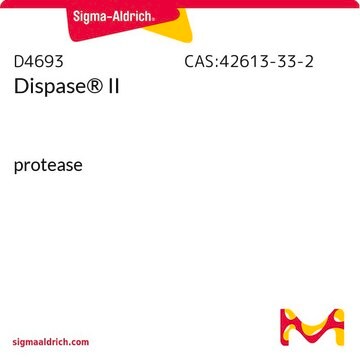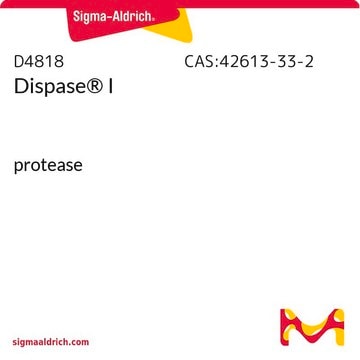UC261
(±)-4-Hydroxydebrisoquin sulfate
Synonyme(s) :
(±)-2-Amidino-4-hydroxy-1,2,3,4-tetrahydroisoquinoline sulfate, (±)-3,4-Dihydro-4-hydroxy-2(1H)-isoquinolinecarboximidamide sulfate
About This Item
Produits recommandés
Forme
solid
Niveau de qualité
Couleur
off-white
Pf
267 °C
Température de stockage
2-8°C
Chaîne SMILES
OS(O)(=O)=O.NC(=N)N1CC(O)c2ccccc2C1.NC(=N)N3CC(O)c4ccccc4C3
InChI
1S/2C10H13N3O.H2O4S/c2*11-10(12)13-5-7-3-1-2-4-8(7)9(14)6-13;1-5(2,3)4/h2*1-4,9,14H,5-6H2,(H3,11,12);(H2,1,2,3,4)
Clé InChI
AETJLQVZNVTWPH-UHFFFAOYSA-N
Application
Actions biochimiques/physiologiques
Conditionnement
Mention d'avertissement
Warning
Mentions de danger
Conseils de prudence
Classification des risques
Eye Irrit. 2 - Skin Irrit. 2 - STOT SE 3
Organes cibles
Respiratory system
Code de la classe de stockage
11 - Combustible Solids
Classe de danger pour l'eau (WGK)
WGK 3
Point d'éclair (°F)
Not applicable
Point d'éclair (°C)
Not applicable
Équipement de protection individuelle
dust mask type N95 (US), Eyeshields, Gloves
Faites votre choix parmi les versions les plus récentes :
Certificats d'analyse (COA)
Vous ne trouvez pas la bonne version ?
Si vous avez besoin d'une version particulière, vous pouvez rechercher un certificat spécifique par le numéro de lot.
Déjà en possession de ce produit ?
Retrouvez la documentation relative aux produits que vous avez récemment achetés dans la Bibliothèque de documents.
Notre équipe de scientifiques dispose d'une expérience dans tous les secteurs de la recherche, notamment en sciences de la vie, science des matériaux, synthèse chimique, chromatographie, analyse et dans de nombreux autres domaines..
Contacter notre Service technique








